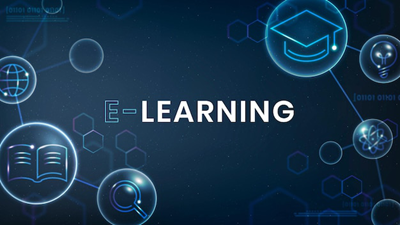As technology continues to advance, so does the world of e-learning. Online education is transforming the way we learn, offering a more flexible and accessible approach to education. From the military to remote work opportunities and adult education programs, e-learning is revolutionizing various aspects of our lives.

Second Air Force: Embracing a Sixth-Generation Learning Ecosystem
Second Air Force officials are moving towards a sixth-generation learning ecosystem across its five technical training wings. This includes implementing Wi-Fi expansion across the learning environment and dormitories at Sheppard AFB, which supports advanced training methodologies such as augmented and virtual reality, self-paced learning, and student-centered learning. Digitizing courseware and increasing student access allows instructors to assess progress and assign additional materials in a way that was not previously available. The ultimate goal is for Airmen to arrive in the field with the highest quality training and the competence and confidence to perform their duties.
 Remote Work Opportunities: Expanding Access to Education and Employment
Remote Work Opportunities: Expanding Access to Education and Employment
Online courses and certification programs are improving qualifications and increasing earning potential for remote workers. Top remote job options without a degree or experience in 2023 include content writer, social media manager, virtual assistant, graphic designer, web developer, and copy editor. Building a strong online presence and maintaining a portfolio can increase the chances of landing a remote job without a degree or experience. Remote work also allows employers to hire from a broader pool of candidates, increasing diversity in their workforce.

Technology in Education: Enhancing Learning Experiences
Technological interventions in education, such as iPads and tablets, are making learning more interactive and engaging. Research shows that technology helps students retain information better and can make least favorite subjects more interesting. Smartphones allow for quick research and access to educational apps, while social media can increase parent-teacher communication and student activities. Overall, research supports the benefits of using technology in the classroom.

Adult Education Programs: A New Chapter for Retirees
Adult education programs are growing in popularity for retirees seeking new chapters and personal growth. Campus-oriented fellowships, such as the Stanford Distinguished Careers Institute, Harvard’s Advanced Leadership Initiative, and the University of Notre Dame’s Inspired Leadership Initiative, offer opportunities for older adults to audit classes, attend lectures, and work on projects with graduate and undergraduate students. A recent study published in the journal Aging and Mental Health shows that classroom learning for older adults makes brains sharper and can lead to long-term improvements in cognition during older adulthood.
